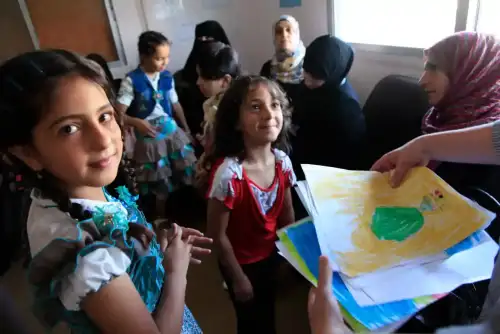Celiac.com 03/14/2025 - Celiac disease is a lifelong autoimmune condition that affects individuals who consume gluten. It requires a strict adherence to a gluten-free diet, which can significantly impact daily life. This study explores the quality of life in children newly diagnosed with celiac disease in Malta, comparing the perspectives of the children themselves with those of their caregivers. By examining physical, emotional, and social dimensions, the research sheds light on the broader implications of managing this condition.
Study Objectives and Methodology
The primary goal of the study was to assess the quality of life for children diagnosed with celiac disease in Malta, focusing on the views of both the children and their parents. Researchers used validated tools, including the KIDSCREEN and CDDUX questionnaires, to measure various aspects of life satisfaction. The study spanned May 2022 to January 2023 and included 268 participants, evenly split between children and their caregivers.
Celiac.com Sponsor (A12):
Participants ranged in age from infancy to 16 years. The study specifically evaluated how factors such as gender, symptoms, and age influenced perceptions of well-being. Additionally, it considered the financial and social impacts of adhering to a gluten-free lifestyle.
Positive Quality of Life Reports
The study revealed that children with celiac disease in Malta generally enjoy a satisfactory quality of life. Most participants reported good physical health and an overall positive outlook. Importantly, the perspectives of children and their caregivers were closely aligned, suggesting that families have a shared understanding of the condition's impact.
However, subtle differences emerged. Caregivers often underestimated the emotional and social challenges faced by their children, such as navigating peer relationships or explaining their condition to others. Despite these discrepancies, the overall emotional well-being and social adaptation of the children were deemed neutral to positive.
Minimal Financial Burden
Unlike other regions where gluten-free diets can impose a significant financial strain, the study found no substantial financial challenges among Maltese families. Government support, including monetary vouchers for gluten-free products, alleviated much of the economic burden. The availability of gluten-free options in local supermarkets and restaurants further contributed to the feasibility of maintaining the diet.
Symptomatic vs. Asymptomatic Patients
The study examined whether children diagnosed through routine screenings without obvious symptoms experienced lower quality of life than those with noticeable symptoms. Interestingly, the findings showed no significant differences between the two groups. Both symptomatic and asymptomatic children reported satisfaction with their gluten-free diet and the improvements it brought to their daily lives.
Gender and Age Considerations
Contrary to expectations, there were no significant differences in quality of life based on gender or age. While adolescence often brings challenges related to dietary adherence and lifestyle adjustments, the Maltese cohort appeared to adapt well regardless of age.
Challenges and Areas for Improvement
Social and Emotional Awareness
A recurring theme was the difficulty children faced in explaining their diagnosis to others. This could stem from a lack of public awareness about celiac disease or limited education on the topic within schools. Enhanced educational programs for both affected children and the general population could improve understanding and reduce stigma.
Limitations of the Study
The study had some limitations, including the exclusion of non-English-speaking families and potential biases introduced by caregivers assisting younger children with the questionnaires. Additionally, the survey was conducted during the COVID-19 pandemic, which may have influenced responses. Future research should aim to address these limitations by offering resources in Maltese and including a broader demographic.
The Maltese Healthcare Context
Malta’s nationalized healthcare system played a crucial role in mitigating the financial and logistical challenges of managing celiac disease. Free medical care, including regular check-ups and diagnostic tests, ensured that families had access to necessary support. This model highlights the benefits of comprehensive healthcare systems in managing chronic conditions.
Implications for Families with Celiac Disease
This study holds significant meaning for families managing celiac disease. It highlights the resilience of children in adapting to a gluten-free lifestyle and underscores the importance of family support in achieving positive outcomes. For caregivers, the findings emphasize the need to remain attentive to the emotional and social needs of their children, even when physical health appears stable.
For families in regions without Malta’s level of support, the study serves as a reminder of the value of community and government initiatives, such as subsidized gluten-free products and public education campaigns. These measures can greatly enhance the quality of life for children with celiac disease and their families.
Conclusion
The findings of this study demonstrate that children in Malta with celiac disease generally enjoy a satisfactory quality of life, thanks to a supportive healthcare system and family dynamics. While challenges remain, particularly in social and emotional areas, the overall outlook is positive. By continuing to prioritize education, psychological support, and public awareness, families and healthcare providers can further enhance the well-being of children living with this condition. This research not only adds to the global understanding of celiac disease but also provides a hopeful perspective for those navigating its challenges.
Read more at: cureus.com











Recommended Comments
There are no comments to display.
Create an account or sign in to comment
You need to be a member in order to leave a comment
Create an account
Sign up for a new account in our community. It's easy!
Register a new accountSign in
Already have an account? Sign in here.
Sign In Now